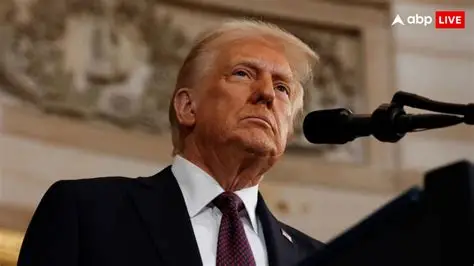US Strike on Venezuelan ‘Drug Boat’: Legality Questioned
The recent fatal United States strike on a Venezuelan vessel allegedly linked to drug trafficking has sparked a storm of debate across Latin America, Washington, and the international community. While US officials maintain the action was justified under counter-narcotics operations, critics have raised serious concerns about the legality of the strike under both international and maritime law.
The incident has opened up broader questions: Was the strike lawful? Did it violate Venezuelan sovereignty? And what does it signal about the growing tensions between Washington and Caracas?
This article provides an in-depth look at the circumstances of the strike, the competing arguments over legality, the historical context of US counter-narcotics operations, and the potential geopolitical fallout.
The Incident: What Happened?
According to reports released by the US Southern Command, the strike occurred in international waters off the coast of Venezuela. Intelligence allegedly identified the vessel as a “narco-boat” operated by traffickers linked to organized crime networks that smuggle cocaine from South America to the United States and Europe.
Engagement: US forces intercepted the boat after what they described as “hostile maneuvers” by the crew.
Fatalities: Several people onboard were killed in the strike, while others were reportedly rescued and detained.
Weapons found?: The US claimed the boat carried small arms and equipment consistent with trafficking operations. However, Venezuelan authorities dispute these claims, arguing that the vessel was a civilian craft.
The lack of independent verification has fueled accusations of misinformation on both sides.
The US Justification
The United States government insists the strike was both lawful and necessary.
Counter-narcotics mission: Officials framed the operation as part of long-standing efforts to disrupt drug trafficking networks.
Self-defense: The US military asserted that the Venezuelan crew posed a “credible threat,” prompting defensive action.
Regional security: Washington argues that drug trafficking destabilizes the region, finances organized crime, and fuels violence.
For the Biden administration, the incident is part of a broader strategy to target illicit networks, especially those allegedly tied to factions within the Venezuelan government.
Venezuela’s Response
Caracas swiftly condemned the attack, labeling it a “flagrant act of aggression” and an “extrajudicial killing” carried out in violation of international law.
Violation of sovereignty: Venezuelan officials claimed the US has no authority to operate militarily so close to its waters without consent.
Political angle: The Maduro government has accused Washington of using the drug war as a pretext for military intimidation and regime-change ambitions.
The incident has further strained already hostile relations between the two nations.
International Law Questions
The central controversy revolves around whether the strike was legal under international law. Experts have highlighted several key issues:
1. Jurisdiction in International Waters
States have the right to patrol international waters, but they cannot unilaterally use lethal force against foreign vessels unless in self-defense or authorized by the UN Security Council.
Was the US acting within its rights to board or attack a Venezuelan vessel without Venezuela’s consent?
2. Sovereignty Concerns
If the strike occurred in international waters but targeted Venezuelan nationals, does this constitute a breach of Venezuelan sovereignty?
Venezuela claims its sovereignty was violated, but the US argues drug trafficking networks are transnational threats outside normal sovereignty protections.
3. Human Rights and Due Process
International law requires that lethal force be proportionate and necessary.
Critics argue the strike amounted to an extrajudicial execution, bypassing due process.
4. Use of Force Doctrine
The UN Charter allows the use of force only in self-defense or with Security Council approval.
The US claims self-defense, but legal scholars are divided on whether a fishing-style boat posed such a threat.
Historical Context: US Counter-Narcotics Operations
The incident is not isolated—it reflects a long history of US military and law enforcement operations in Latin America.
Plan Colombia (2000s): Heavy US involvement in combating Colombian cartels, including military aid and intelligence sharing.
Operation Martillo (2012–present): A multinational US-led operation targeting maritime drug smuggling routes in the Caribbean and Eastern Pacific.
Venezuela focus: Since the 2000s, Washington has accused Caracas of tolerating, if not enabling, trafficking networks, particularly through its military and political elite (the so-called “Cartel of the Suns”).
This history underscores why Venezuela views the latest strike as part of a broader pattern of US intervention.
The Geopolitical Angle
Beyond legalities, the strike carries significant political implications.
US–Venezuela Relations
Relations are already at rock bottom, with Washington recognizing opposition leader Juan Guaidó as Venezuela’s rightful leader in past years.
Regional Reactions
Allies of Venezuela such as Cuba, Nicaragua, and Bolivia condemned the US action.
Neutral states in the Caribbean have expressed concern about militarization of regional waters.
Colombia and Brazil, both more aligned with Washington, have remained cautious, emphasizing the need to fight trafficking but calling for respect for international law.
Global Dimension
The US framed it as part of a global struggle against organized crime, seeking European support.
Legal Experts Weigh In
International legal scholars are divided:
Defending legality: Some argue that if the US military faced imminent threat from armed traffickers, self-defense could justify the strike.
Challenging legality: Others stress that without independent verification of a threat, the action looks like an unlawful use of force.
Grey area: The lack of transparency around evidence means the legality remains ambiguous, dependent on facts not publicly available.
This ambiguity is not unusual in counter-narcotics operations, where secrecy and intelligence claims often clash with legal standards.
Human Rights Concerns
Extrajudicial killings: Groups argue the strike bypassed due process and may constitute unlawful killings under international human rights law.
Accountability: Without transparency, there is little recourse for victims’ families.
Pattern of force: NGOs warn this could set a dangerous precedent for unilateral lethal actions in international waters.
Domestic Politics in the US
The strike has also sparked debate in Washington.
Supporters: Many lawmakers argue it demonstrates resolve against drug traffickers.
Critics: Others question whether such unilateral actions risk escalation with Venezuela and undermine international law.
Election-year dynamics: Some analysts believe the administration is showcasing toughness on crime and border security ahead of elections.
The debate highlights the intersection of foreign policy and domestic political strategy.
Domestic Politics in Venezuela
For Nicolás Maduro, the strike is politically useful.
Rallying nationalism: The government has framed it as proof of US aggression, rallying domestic support.
Deflecting attention: Critics suggest Caracas is using the incident to distract from Venezuela’s economic crisis and political repression.
Strengthening alliances: It allows Maduro to reinforce ties with Russia, China, and Iran, presenting himself as a victim of US imperialism.
Thus, the strike may deepen Maduro’s grip rather than weaken it.
What Happens Next?
The incident raises several immediate questions:
Independent investigation: Will international bodies or neutral states push for fact-finding?
Legal cases: Could Venezuela pursue a case at the International Court of Justice (ICJ)?
Escalation risk: Will the US conduct more strikes, or was this an isolated event?
Regional cooperation: Will the incident undermine multinational anti-drug efforts?
The answers may shape regional stability in the months ahead.
Conclusion: Lawful Strike or Dangerous Precedent?
The US strike on the Venezuelan “drug boat” sits at the intersection of law, politics, and geopolitics.
From Washington’s perspective, it was a necessary act against traffickers who threatened US forces.
From Caracas’s perspective, it was an unlawful act of aggression against Venezuelan nationals.
From a legal standpoint, the truth depends on facts not yet publicly verified—whether the vessel truly posed a threat, and whether lethal force was proportionate.
What is clear is that the incident has reignited debates about sovereignty, international law, and the militarization of counter-narcotics operations. Whether this will lead to accountability or simply fade into the long history of disputed US actions in Latin America remains to be seen.



